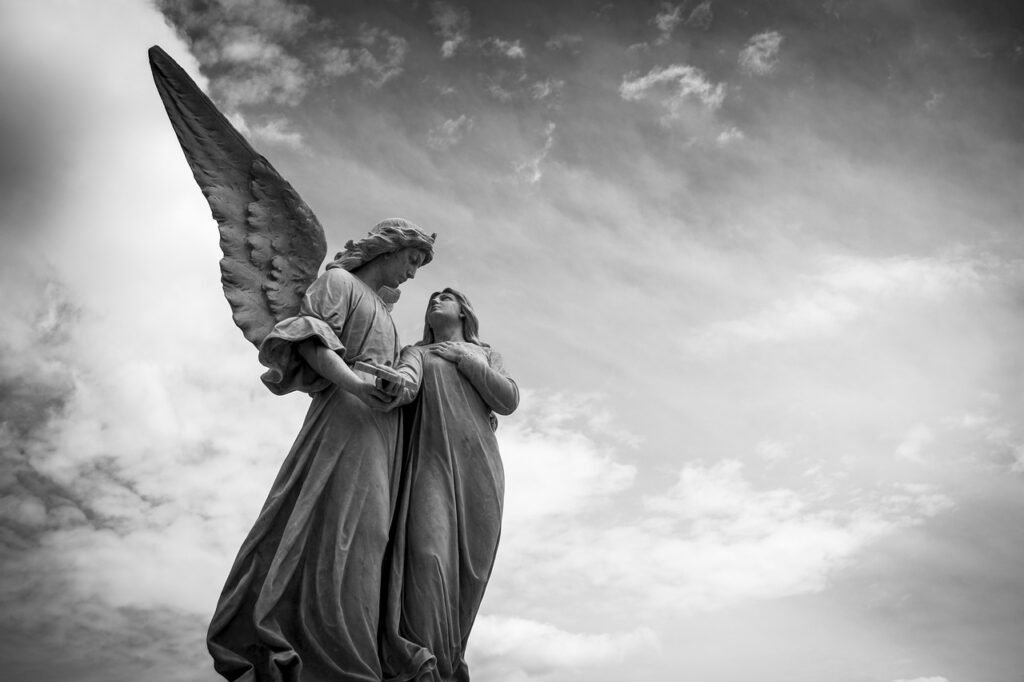What Are The Major Religions Practiced In Kenya?
In Kenya, a diverse country located in East Africa, a multitude of religions are practiced by its vibrant population. The major religions that hold a significant presence in the country include Christianity, Islam, traditional African religions, and Hinduism. Each of these faiths brings a unique cultural and spiritual dimension to Kenya, fostering an inclusive atmosphere where people of various beliefs can coexist harmoniously. Let’s take a closer look at how these major religions are practiced and their influence on the Kenyan society.

This image is property of pixabay.com.
Christianity
Introduction to Christianity in Kenya
Christianity is one of the major religions practiced in Kenya, with a significant influence on the country’s culture, traditions, and overall way of life. It was introduced to Kenya during the colonial era by European missionaries and has since grown to become the largest religious affiliation in the country. The spread of Christianity in Kenya can be attributed to various factors, including evangelism efforts, education, and social services provided by Christian organizations.
Denominations in Christianity
Within Christianity, there are various denominations present in Kenya. The main denominations include Catholicism, Protestantism, and Anglicanism. The Catholic Church is one of the largest denominations in the country, with a substantial number of followers. Protestantism encompasses a wide range of denominations, such as the Presbyterian Church of East Africa, the African Inland Church, and the Methodist Church, among others. Additionally, Anglicanism, which has historical ties to the British colonial period, also has a significant presence in Kenya.
Influence of Christianity in Kenya
Christianity has had a profound impact on Kenya’s society, influencing various aspects of life. The Christian faith plays a crucial role in shaping the moral fabric of the nation, providing guidance on issues such as family values, ethics, and personal conduct. Christian values are often reflected in Kenya’s legal system and governance, contributing to a sense of social cohesion and unity.
Moreover, Christianity has played a vital role in education and healthcare in Kenya. Many schools and hospitals in the country are established and operated by Christian organizations. These institutions provide education and medical services to individuals from all walks of life, making significant contributions to the development of the nation.
The Christian faith has also influenced the arts and cultural expressions in Kenya. Christian music, including gospel and hymns, enjoys immense popularity and has become an integral part of Kenya’s musical landscape. Additionally, Christian celebrations and festivals, such as Christmas and Easter, are widely observed and celebrated throughout the country.
Islam
Introduction to Islam in Kenya
Islam is another major religion practiced in Kenya and has a rich history in the country. It was introduced to Kenya during the early years of the Islamic faith and has since grown to become the second-largest religious affiliation in the nation. Islam in Kenya has thrived due to various factors, including trade relations with Muslim traders along the East African coast and conversion efforts by Islamic scholars and missionaries.
Denominations in Islam
Islam in Kenya is predominantly practiced by Sunni Muslims, although there is also a significant Shi’a Muslim minority. The Sunni community is further divided into various sects and orders, including the Shafi’i, Hanafi, and Maliki schools of thought. The Shi’a community, on the other hand, consists primarily of the Isma’ili and Ithna Ashari sects.
Influence of Islam in Kenya
Islam has had a profound influence on Kenya’s society, particularly in the coastal region where the religion first took root. The Islamic faith plays a significant role in shaping the cultural practices, traditions, and values of Muslim communities in Kenya. Islamic principles guide many aspects of life, including family dynamics, personal conduct, and community relations.
Furthermore, Islamic institutions, such as mosques and madrasas, play a crucial role in providing religious education, social support, and community engagement. Mosques are not only places of worship but also serve as centers for learning, social gatherings, and charitable activities within the Muslim community.
Islamic festivals, such as Eid al-Fitr and Eid al-Adha, are widely celebrated in Kenya, bringing together Muslims from different backgrounds to commemorate significant events in the Islamic calendar. These celebrations contribute to fostering a sense of unity and solidarity within the Muslim community.
In addition to its influence on the cultural and social aspects of Kenyan life, Islam has also made significant contributions to education, healthcare, and other sectors through the establishment of Islamic institutions and organizations.

This image is property of pixabay.com.
Hinduism
Introduction to Hinduism in Kenya
Hinduism, with its rich traditions and vibrant culture, is practiced by a sizable community in Kenya. It traces its roots back to the Indian diaspora, as many Indians migrated to Kenya during the colonial era for various purposes, including trade and labor. Today, Hinduism has established a firm foothold in the country, with temples and cultural centers spread across different regions of Kenya.
Hindu Temples in Kenya
Kenya is home to several Hindu temples, which serve as essential places of worship and community gathering for Hindus. These temples are not only spiritual centers but also cultural hubs that promote the preservation and celebration of Hindu traditions and festivals.
Some prominent Hindu temples in Kenya include the Shri Swaminarayan Mandir in Nairobi, the BAPS Shri Swaminarayan Mandir in Mombasa, and the Shri Sidhi Vinayak Temple in Kisumu. These temples host religious ceremonies, festivals, and cultural events that bring together the Hindu community in Kenya, providing a platform for spiritual growth, cultural preservation, and community engagement.
The Hindu community in Kenya actively participates in various social welfare and philanthropic activities, contributing to the betterment of society as a whole. Through initiatives such as educational scholarships, healthcare programs, and charitable endeavors, Hindus in Kenya demonstrate their commitment to the well-being and development of the nation.
Traditional African Religions
Introduction to Traditional African Religions in Kenya
Traditional African religions, deeply rooted in the rich cultural heritage of the continent, have been practiced in Kenya for centuries. These religions are diverse in their beliefs and practices, varying across different ethnic groups and regions. Traditional African religions emphasize a close connection with nature, ancestral worship, and the belief in spirits and supernatural forces.
Beliefs and Practices
Traditional African religions in Kenya are characterized by a belief in a supreme being, often referred to as Mungu, Ngai, or Mulungu, depending on the ethnic group. Ancestral worship is an essential aspect of these religions, as ancestors are seen as intermediaries between the living and the divine. Rituals and ceremonies are performed to honor and communicate with ancestors, seeking their guidance and blessings.
Nature and natural phenomena are considered sacred in traditional African religions, with various rituals and practices associated with them. Offerings and sacrifices are made to appease spirits residing in natural elements such as mountains, rivers, and trees. Traditional healers, known as witch doctors or medicine men, play a vital role in these religions, using their knowledge of herbal medicine and spiritual practices to heal and protect individuals.
Influence of Traditional African Religions in Kenya
Traditional African religions continue to exert a significant influence on Kenyan society, particularly in rural areas where the connection to ancestral heritage and natural surroundings remains strong. Although traditional religions have interacted with other belief systems, such as Christianity and Islam, they have managed to maintain their unique identity and play an integral role in the cultural fabric of Kenyan communities.
Traditional African religious beliefs and practices are often intertwined with other aspects of daily life, including rites of passage, agriculture, and governance. Local customs, rituals, and traditional ceremonies reflect the strong influence of these religions, highlighting the importance of communal harmony, respect for elders, and the preservation of cultural heritage.
In recent years, there has been a growing recognition of the cultural value and significance of traditional African religions, leading to efforts to promote their preservation and documentation. Government programs and initiatives, as well as community-led projects, seek to safeguard and promote the diverse cultural heritage represented by these religions, acknowledging their role in shaping Kenya’s identity.

This image is property of pixabay.com.
Sikhism
Introduction to Sikhism in Kenya
Sikhism, a monotheistic religion founded in the fifteenth century in the Punjab region of India, has a small but vibrant community of followers in Kenya. Sikhs migrated to Kenya during the colonial era, primarily to work on the construction of the Uganda Railway. Over time, the Sikh community has established a strong presence in the country, contributing to various sectors of Kenyan society.
Sikh Gurdwaras in Kenya
Gurdwaras, the places of worship for Sikhs, are significant institutions within the Sikh community in Kenya. These gurdwaras serve as spiritual centers, providing a space for Sikhs to gather for prayers, community events, and social services.
Prominent gurdwaras in Kenya include the Siri Guru Singh Sabha Gurdwara in Nairobi and the Sikh Temple in Kisumu. These gurdwaras provide a range of services, such as langar (community kitchen), where free vegetarian meals are served to anyone regardless of their religion or background. Additionally, gurdwaras offer educational programs, religious classes, and support for charitable initiatives, reflecting the Sikh principles of service and equality.
Sikhs in Kenya actively participate in philanthropic activities and contribute to the welfare of society. The Sikh community is well-known for its charitable endeavors, including providing scholarships, supporting hospitals, and organizing blood donation drives. These initiatives aim to alleviate suffering and promote the well-being of all individuals, irrespective of their religious affiliations.
Buddhism
Introduction to Buddhism in Kenya
Buddhism, a spiritual tradition originating in ancient India, has gained a small but devoted following in Kenya. The presence of Buddhism in Kenya can be attributed to immigration, as well as the influence of international Buddhist organizations and visiting teachers who have introduced Buddhist teachings and practices to the country.
Buddhist Temples in Kenya
Buddhist temples, known as viharas, provide spaces for Buddhist practice and teachings in Kenya. These temples serve as places of worship, meditation, and learning, allowing practitioners to come together and deepen their understanding of Buddhist principles.
The Nairobi Buddhist Vihara is one of the most prominent Buddhist temples in Kenya, offering regular meditation sessions, Dhamma discussions, and Buddhist educational programs. The temple serves as a hub for the Buddhist community, hosting cultural events, celebrations, and retreats.
Buddhists in Kenya follow various traditions and practices, including Theravada, Mahayana, and Vajrayana Buddhism. The teachings of compassion, mindfulness, and the pursuit of spiritual enlightenment are central to the Buddhist faith, guiding practitioners in their daily lives.
Bahá’í Faith
Introduction to Bahá’í Faith in Kenya
The Bahá’í Faith, a monotheistic religion founded in the mid-nineteenth century, has gained a modest yet dedicated following in Kenya. The Bahá’í Faith stands for the unity of all religions and the advancement of society through the spiritual and moral education of individuals.
Influence of Bahá’í Faith in Kenya
The principles of the Bahá’í Faith, such as the unity of humankind, the elimination of prejudice, and the pursuit of universal education, have resonated with individuals from diverse backgrounds in Kenya. The Bahá’í community in Kenya actively contributes to various social and development initiatives, promoting unity, equality, and justice.
The Bahá’í community has been involved in projects related to education, women’s empowerment, and community development. They have established schools, children’s classes, and adult literacy programs, providing educational opportunities to individuals from all backgrounds. Additionally, the Bahá’í community promotes the empowerment of women, recognizing their crucial role in the progress of society.
Bahá’í temples, known as Houses of Worship or Mashriqu’l-Adhkar, are architectural marvels and spiritual centers where people of all faiths can come together for prayer and reflection. While Kenya does not currently have a Bahá’í House of Worship, the principles and teachings of the Bahá’í Faith continue to inspire individuals to work towards the betterment of society.
Judaism
Introduction to Judaism in Kenya
Judaism, one of the world’s oldest religions, has a small but vibrant community in Kenya. The Jewish presence in Kenya dates back to the early twentieth century, with Jewish settlers arriving primarily from Europe and the Middle East. Today, the Jewish community in Kenya continues to practice their faith and preserve their cultural heritage.
Synagogues in Kenya
Synagogues, the places of worship for Jews, serve as focal points for Jewish communities in Kenya. Synagogues provide spaces for prayer, study, and gathering, allowing Jews to come together to celebrate their traditions and observe religious rituals.
Nairobi Hebrew Synagogue is the main synagogue in Kenya, serving as a spiritual center for Jews in Nairobi and the surrounding areas. The synagogue hosts regular services, religious ceremonies, and educational programs, providing a sense of community and a place to connect with Jewish traditions.
Jews in Kenya celebrate their religious holidays and festivals, such as Passover, Rosh Hashanah, and Hanukkah, in accordance with Jewish customs and traditions. These celebrations serve as opportunities to gather as a community, strengthening relationships and fostering a sense of unity among Jewish individuals.
Jewish organizations in Kenya are actively engaged in philanthropic endeavors, supporting various social causes and charitable initiatives. These organizations contribute to the welfare of the broader Kenyan society, reflecting the Jewish values of tikkun olam (repairing the world) and social justice.
Other Indigenous Religions
Introduction to Other Indigenous Religions in Kenya
In addition to the major religions mentioned above, Kenya is also home to various indigenous religions practiced by different ethnic groups. These indigenous religions are diverse and highly localized, closely connected to the cultural practices, beliefs, and values of specific communities.
Beliefs and Practices
Indigenous religions in Kenya encompass a wide range of spiritual beliefs and practices, often revolving around the veneration of ancestors, animism, and nature worship. These religions emphasize the interconnectedness between humans, spirits, and the natural environment. Ceremonies, rituals, and offerings are performed to ensure harmony and maintain a respectful relationship with the spiritual realm.
Different communities have distinct systems of beliefs and practices. For instance, the Luo community believes in the power of ancestral spirits and performs rituals that include dances, songs, and sacrifices to appease and communicate with their ancestors. The Maasai community holds the belief in a supreme being called Enkai and conducts ceremonies to honor and seek blessings from Enkai.
Influence of Other Indigenous Religions in Kenya
While the influence of other indigenous religions may not be as prominent as that of Christianity or Islam, these belief systems continue to shape the cultural identity, values, and traditions of various Kenyan communities. Many Kenyans, especially those in rural areas, continue to practice elements of indigenous religions alongside other recognized faiths.
These indigenous religions play a significant role in fostering a sense of community, preserving cultural heritage, and maintaining a connection with ancestral roots. Traditional ceremonies, initiation rites, and cultural events often incorporate elements of these religions, serving to pass down traditions from one generation to the next.
The recognition and appreciation of other indigenous religions in Kenya have been growing in recent years, with efforts to protect and preserve the cultural practices and knowledge associated with these belief systems. Acknowledging the significance of these religions contributes to the broader understanding and celebration of Kenya’s diverse cultural heritage.
Agnosticism and Atheism
Introduction to Agnosticism and Atheism in Kenya
Agnosticism and atheism, representing a lack of belief in deities or an acknowledgment of the limitations of human knowledge, have a small but growing presence in Kenya. While the majority of Kenyans adhere to various religious affiliations, there is also a notable population that identifies as agnostic or atheist.
Secularism in Kenya
Secularism, the separation of religion and state, is a significant aspect of Kenya’s constitution, which guarantees freedom of religion and belief for all individuals. Secularism allows for the coexistence of diverse religious beliefs and non-religious perspectives in the country.
Agnostics and atheists in Kenya often advocate for the rights of individuals to choose their beliefs freely and to live according to their own moral compass, irrespective of religious dogma. They may engage in discussions and dialogues to promote critical thinking, rationality, and evidence-based reasoning.
While religious belief remains the predominant worldview in Kenya, the presence of agnosticism and atheism serves as a reminder of the importance of freedom of thought, inquiry, and the pursuit of knowledge. The coexistence of various religious perspectives and non-religious philosophies contributes to a pluralistic and inclusive society in Kenya.
In conclusion, Kenya is a country that embraces diversity in religious beliefs, with Christianity, Islam, Hinduism, traditional African religions, Sikhism, Buddhism, Bahá’í Faith, Judaism, and other indigenous religions all found within its borders. Each religion brings its unique traditions, practices, and values, contributing to the cultural and social fabric of the nation. The influence of these religions can be felt in various aspects of Kenyan life, including education, healthcare, arts, and community engagement. The presence of agnosticism and atheism also highlights the importance of tolerance, freedom of belief, and the recognition of diverse perspectives within Kenyan society. Ultimately, the religious landscape in Kenya reflects the country’s rich heritage, promoting a sense of unity, understanding, and respect among its diverse population.






